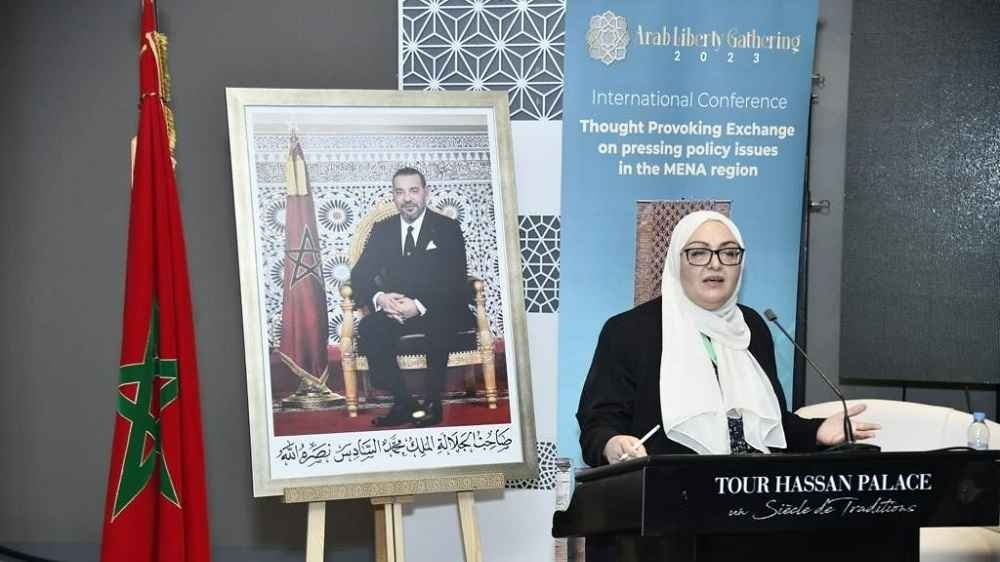


Dr. Tesnim Khriji presented "Integration of Refugees: Challenges and Recent Developments" at the firs conference named “Averroes Policy Platform”. In the second event, an international conference titled "Thought-provoking Exchange on Pressing Policy Issues Impacting the MENA Region”, Dr. Khriji presented "Desperate Democratic Transition: Hope, Backslides, and Stagnation". The event has been held between 30 November – 3 December in the city of Rabat, Morocco.
This year's Arab Liberty Gathering aims to highlight the important role of civil society in addressing the challenges of democratic transitions, economic difficulties and refugee issues in the Arab world. Despite facing marginalization, civil society organizations have made significant contributions to democratization and economic reforms. The event serves as a platform for dialogue between civil society, experts and policymakers and focuses on priority policy issues.
With Afghanistan as the guest country to honor civil society actors who continue their efforts under the restrictive conditions imposed by the Taliban regime, the meeting aimed to facilitate discussions and exchange of ideas to promote positive changes in the region.
On 1 December, Dr. Khriji made an impressive contribution to the morning session of the "Averroes Policy Forum", focusing on the experiences of refugees and displaced communities in the region in the third panel "Refugees Integration: Challenges and Latest Developments” focused on the experiences of refugees and displaced communities in the region. This panel focused on positive examples of empowering refugee communities, with a special emphasis on changing the narrative around migration.
The main message of Khriji's presentation was that instead of seeing migration as a problem for host communities, we should see it as an opportunity to strengthen host countries' governance systems in the face of pressures and crises, and that resilient governance systems can effectively respond to the challenges posed by displaced communities by recognizing and valuing the contributions of specific migrant groups, which is ultimately beneficial for the host community.
The discussion also focused on the sociological importance of emphasizing individual stories and experiences beyond the statistical aspects of migration. Dr. Khriji's presentation concluded by emphasizing the importance of building solidarity between various segments of society beyond the distinction between "host" and "guest", to best respond to current and future crises in the region.
In the second event of the Arab Liberty Gathering, "Thought-provoking Exchange on Pressing Policy Issues Impacting the MENA Region", Khriji presented "Desperate Democratic Transition: Hope, Backslides, and Stagnation”, Khriji focused on the reasons why stagnation does not mean the end of changes and transformations in Arab societies or the end of demands for political change, individual and collective rights and freedoms. In his presentation, Khriji made this claim by presenting the facts of deep demographic and cultural changes, which he argued are in fact the changes that have led to the demand for more political change. Dr. Tesnim Khriji's presentation also presented and discussed public opinion trends regarding democracy over the past decade, highlighting that although the past decade has been full of failed transitions, the Arab Spring has shown signs of some positive attitudinal effects despite what appears to be a general failure among various age groups, and concluded with an analysis of transition theory criteria for assessing long-term historical social and political changes.